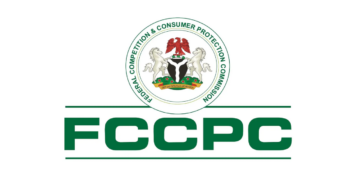The Nigeria Deposit Insurance Corporation (NDIC) has said, it is already working assiduously to ensure that, all depositors with amounts in excess of the maximum insured deposit amount of N5 million are paid through liquidation dividends from the realisation of the failed Heritage Bank’s assets and recovery of debts.
This is even as the corporation has closed 651 banks, involving 50 deposit money banks (DMBs), 55 Primary Mortgage Banks (PMBs) and 546 microfinance banks (MFBs) in the country.
The uninsured deposits, it said, represent a significant portion of the total deposits in Heritage Bank even as the corporation stated that it has largely reimbursed depositors of the defunct bank of their insured deposits, adding that, depositors with balances exceeding N5 million would soon be paid the balance of their deposits.
The managing director/CEO of NDIC, Hassan Bello, while speaking yesterday at the 2024 workshop for Financial Correspondents Association of Nigeria (FICAN) in Ikeja, Lagos, said: “The Corporation has already initiated the process of debt recovery and realisation of investments and physical assets of the defunct bank to ensure timely payment of the uninsured deposits of the defunct bank.”
The NDIC’s responsibilities, he added, extend to the creditors of the defunct bank, who will receive payments after all depositors have been fully reimbursed, noting that, the orderly process, based on asset realisation and priority of claims, is essential in maintaining public trust in the banking system and promoting financial stability.
He said the handling of the Heritage Bank liquidation illustrates the broader role of the NDIC in ensuring that even in times of financial disruption, depositors can be rest assured that their funds are protected.
To him, “Confidence is key in the maintenance of financial system stability. As one of the safety-nets, NDIC reassures depositors its determination to live above board, thereby instilling trust in the banking system and preventing bank runs during times of uncertainty. Over the years, the NDIC has been instrumental in promoting stability by ensuring that when banks fail, depositors are protected, and their funds are reimbursed promptly.”
Delivering her paper titled ‘Effective Bank Closure: The NDIC’s Experience and Current Innovations’ the deputy director, NDIC, Enugu zonal office. Pamela Roberts said, the closure of the 651 banks occurred in 18 bank closing episodes since its establishment to date.
Listing some of the issues that hampered the effective and efficient bank closing, she said: “Skills and competence of staff as during the episodes (1&2), the staff were not knowledgeable in the field of bank closing since it was new, and there was no previous experience to rely on. Similarly, during the episodes (1&2), the staff were threatened by the bank owners who were aggrieved because of the revocation of their bank licences. Notable examples were Jimi Lawal and Chief Ajayi.”
Disclosing that the closure of Savannah and SGN Banks were aborted by litigation, he noted that the corporation has been addressing litigation issues on Triumph and Fortune banks for over 14 years and no idea of the time the suits will be fully determined.
Despite the challenges identified in the episodes of bank closing, she assured that the corporation has been able to make concerted efforts to ensure effective bank closure and prompt payment to depositors.
“However, the issue of prompt payment is not the function of the Corporation alone as depositor apathy has been a major impediment to successful failure resolution in Nigeria. The current innovations of the NDIC could be complemented by the active response of the Depositors who should come forward to make their claims,” she pointed out.
She assured that NDIC will continue to evolve policies to ensure that all depositors of banks are covered under its insurance coverage in a bid to create a saner financial system.
Earlier, the NDIC director of Research, Dr Kabir Katata, at a workshop for financial journalists in Lagos, noted that, with nearly 99 per cent of depositors in the Nigerian financial system covered by NDIC, confidence in the country’s banking system has improved with the industry seeing limited bank runs over the years.
She also said, NDIC has commenced the process of obtaining an order to wind down Fortune Bank, 18 years after the withdrawal of the bank’s licence.
Speaking on the “Path of NDIC Deposit Insurance Coverage: The Past, Present & Future” he revealed that, with the maximum deposit insurance coverage of N5 million, the Deposit Insurance Fund in the country has risen to N2.31 trillion as at May 2024.
He explained that with the NDIC at N5 million, 99.68 per cent of total number of depositors were fully covered, with corresponding 27.87 per cent of total value of deposits based on end-December 2022 data.
“Using end-June 2023 data, the MDIC at N5 million implies that 98.98 per cent of total number of depositors were fully covered with corresponding 25.37 per cent of total value of deposits.
“For the MFBs, the MDIC to N2 million, implies that 99.27 per cent of total number of depositors were fully covered with corresponding 34.43 per cent of value of total deposits, based on end-June 2023 data.
“On average, 95 per cent of accounts in Nigeria are fully covered. This value is higher for jurisdictions in the Americas: for Latin America it is 98 per cent and for the North America-Caribbean region it is 97 per cent. It is lower for Europe, where it is 92 per cent If we analyse medians instead, the value worldwide is higher, at 97 per cent.
“Total deposits averaged 40 per cent among respondents. This value is lower for Africa-Middle East and Asia-Pacific, where it is 30 per cent and 31 per cent respectively, and highest for Europe at 51 per cent. For the PSBs, the MDIC of N2 million implies that 99.99 per cent of total number of depositors were fully covered with corresponding 42.7 per cent of value of total deposits, based on end-June 2023 data,” he noted.





